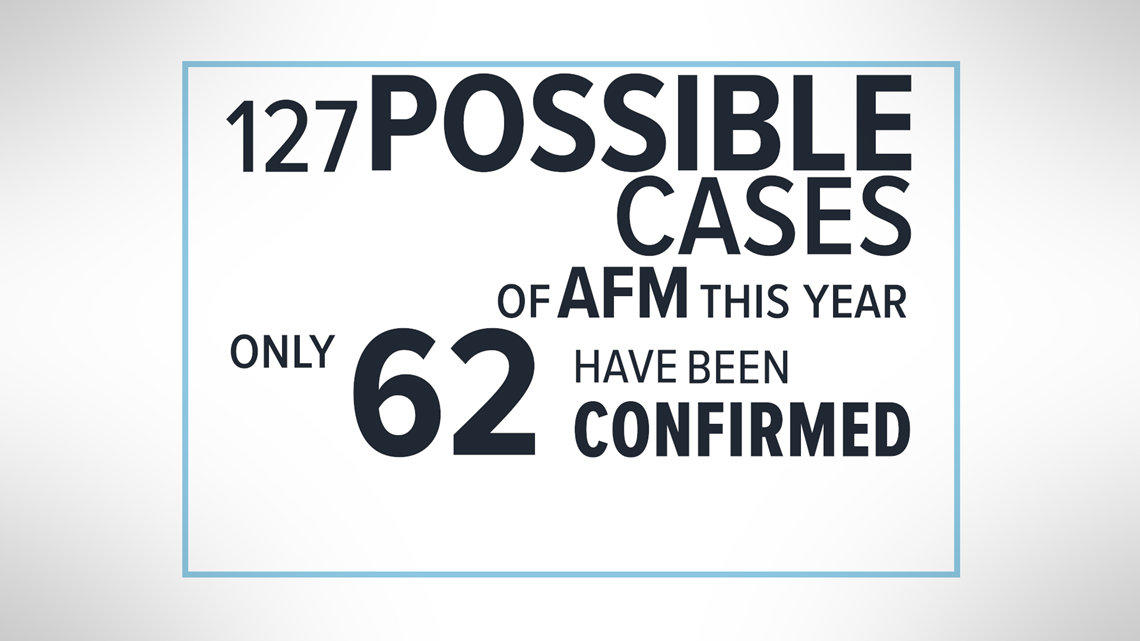Acute Flaccid Myelitis (AFM) is a condition that is causing fear and confusion as more cases pop up across the country.
It's often called a "polio-like" illness due to its effects on the nervous system.
As of the writing of this article, the Centers for Disease Control and Prevention reported cases of AFM in 22 states. The CDC has seen 127 reported cases, but only confirmed 62 of them.
The condition comes on quickly, according to Dr. Nancy Messonnier, the Director of the CDC's National Center for Immunization and Respiratory Diseases.
“This is actually a pretty dramatic disease," she said in a CDC press conference earlier this week. "These kids have a sudden onset of weakness. They are generally seeking medical care and being evaluated by neurologists, infectious disease doctors and pediatricians...We think the majority of cases are coming to our attention.”


Symptoms for AFM include:
- drooping face and eyelids
- difficulty with eye movement
- difficulty swallowing
- slurred speech
Dr. Messonnier said the biggest warning sign to watch for is "sudden weakness or loss of muscle tone in the arms or legs."
Here's the breakdown of what the CDC presented.
WHAT WE DO KNOW ABOUT AFM
- There have been 127 possible cases in 2018. 62 of them have been confirmed.
- 90 percent of the recorded cases happened in children under the age of 18.
- There was one fatal case of AMF in 2017.
- Since the CDC first started recording data in 2014, there have been 386 confirmed cases.
- While it's often called "polio-like," it is not caused by polio.
WHAT WE DON'T KNOW ABOUT AFM
- It's cause
- Despite the money and time the CDC and other agencies are spending looking into the condition, they have been unable to determine a cause of the condition.
- It's lasting effects
- According to Dr. Messonnier, some patients recovered fully while others suffered long term paralysis. At this point the CDC does not know why.


HOW DOES THIS YEAR COMPARE?
While the numbers appear higher at this point in 2018 compared to previous years, that isn't due to an increased occurrence of AFM.
The CDC is purposefully releasing the numbers of "potential cases" of AFM this year, something they did not do in previous years.
According to Dr. Messonnier, the numbers are on par with the number of cases in previous years. The condition is still incredibly rare at a rate of less than 1 in 1 million people.
WHAT TO DO
Since there is no known cause of AFM, it's difficult to know exactly how to avoid it. The CDC has been studying connections to rhinovirus and other pathogens and suggests parents and children follow current disease prevention steps. Those include staying current on vaccines, washing hands and wearing insect repellent.



